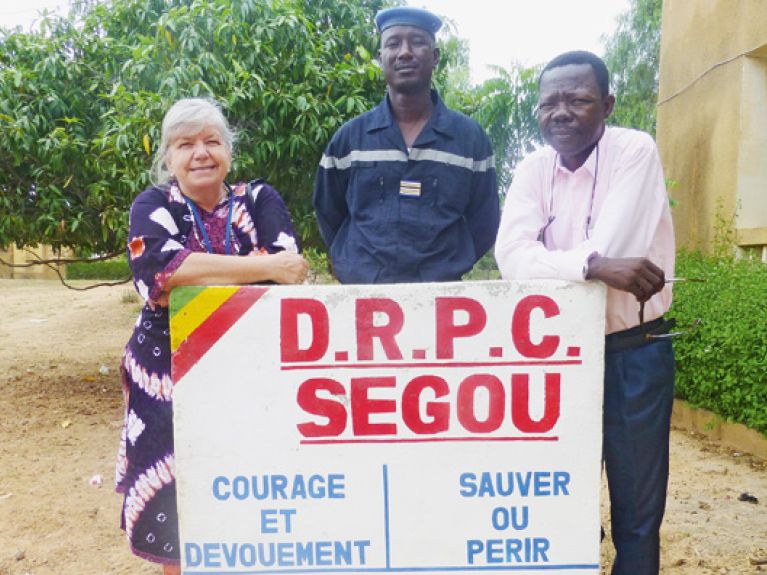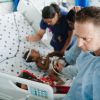“We contribute to saving people’s lives”
Ute Kollies is Head of the OCHA office in Mali, where she coordinates humanitarian aid.

In addition to its headquarters in Geneva and New York, the United Nations Office for the Coordination of Humanitarian Affairs (OCHA) maintains 35 offices with 1,900 employees around the world. Following fighting between government troops and Tuareg rebels in northern Mali and a military coup in March 2012, hundreds of thousands of people took flight. Islamist groups took control of broad expanses of northern Mali. The French army intervened at the request of the Malian government. The United Nations MINUSMA peace mission has been active in Mali since the middle of 2013, including participation by the German Bundeswehr. In January 2016 the German Bundestag agreed to broaden this participation. The stabilisation of Mali is one of the most important tasks in the region.
Ms Kollies, you have been in charge of the OCHA office in Bamako since April 2012. Can you describe the situation in Mali now in 2016?
Three-quarters of a year after the signing of the peace agreement in June 2015 the population is still waiting for a peace dividend. Although roughly 400,000 of the 522,000 internal refugees have returned to their homeland, additional positive signs are required as soon as possible to fully re-integrate them and eliminate the reasons for young people’s recruitment to the armed conflict or drug and people trafficking. Above all, there is an urgent need for initiatives in the field of education and vocational training. There are also hardly any employment opportunities. Mali is one of the poorest countries in the world. The situation in the north is especially difficult with many basic social services only functioning thanks to humanitarian assistance. Over 2.5 million people, that is 14% of the population, continue to need support with basic supplies.
What has the OCHA already been able to achieve to improve people’s situation in Mali?
In 2015, humanitarian organisations were able to help over one million people with roughly 132 million US dollars, which corresponds to only around one third of the required funding. Drinking water projects, food aid and education campaigns have contributed to saving people’s lives. OCHA has worked as a coordinator bringing together the various actors from the United Nations and non-governmental organisations to arrange support in an effective way. Incidentally, I would like to explicitly thank Germany for its long-term financial support of the OCHA.
If you were granted a wish, what would you want to make the assistance more effective?
It’s very important that the financing is right. We need to have 354 million US dollars available for 2016. Furthermore, cooperation between development workers and humanitarian organisations has to be improved in order to find long-term solutions. And progress is required as soon as possible in the active and practical implementation of the peace agreement. That is the only way to successfully make the transition from humanitarian assistance to development cooperation.
What motivates you in your work?
Early on in my life I realised that people do not all have the same opportunities. I would like to do as much as possible to overcome this inequality, which people face through no fault of their own. In a world of ever decreasing solidarity I am aware of how little ultimately I can do. But I do something. Every day. And I see others who are also involved in focusing on people. That pleases me no end. ▪
Interview: Janet Schayan

